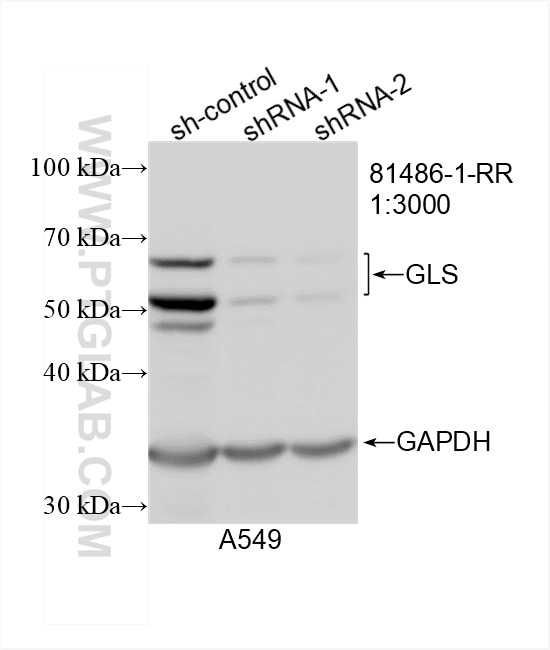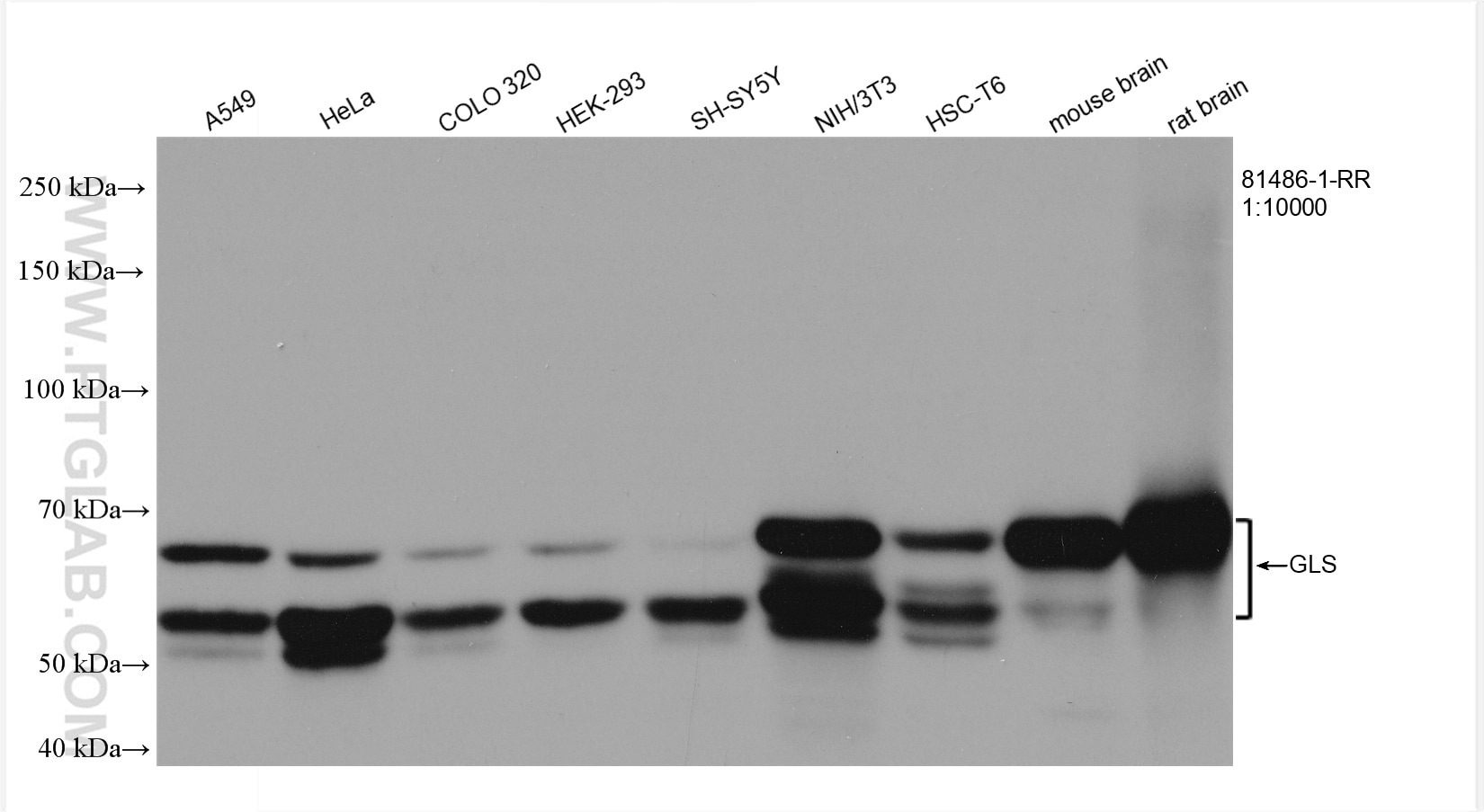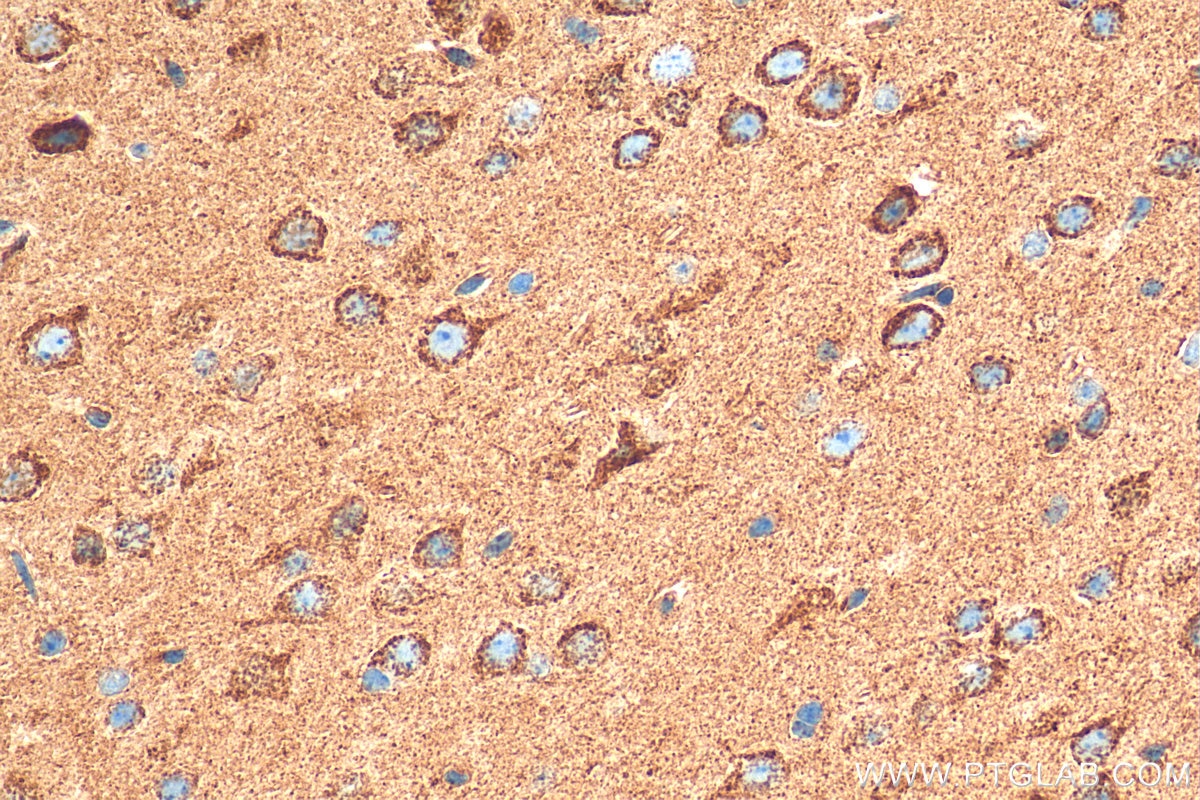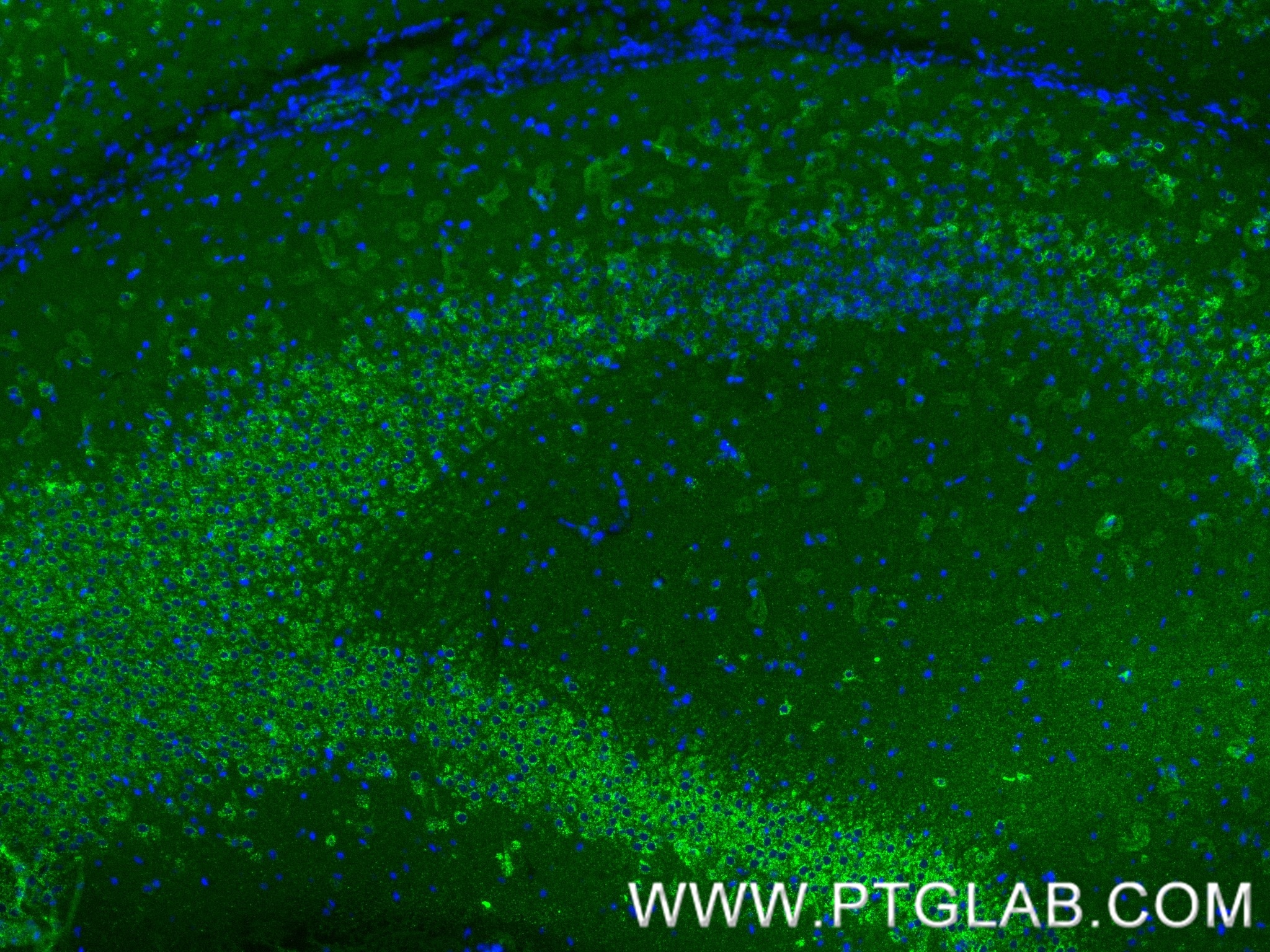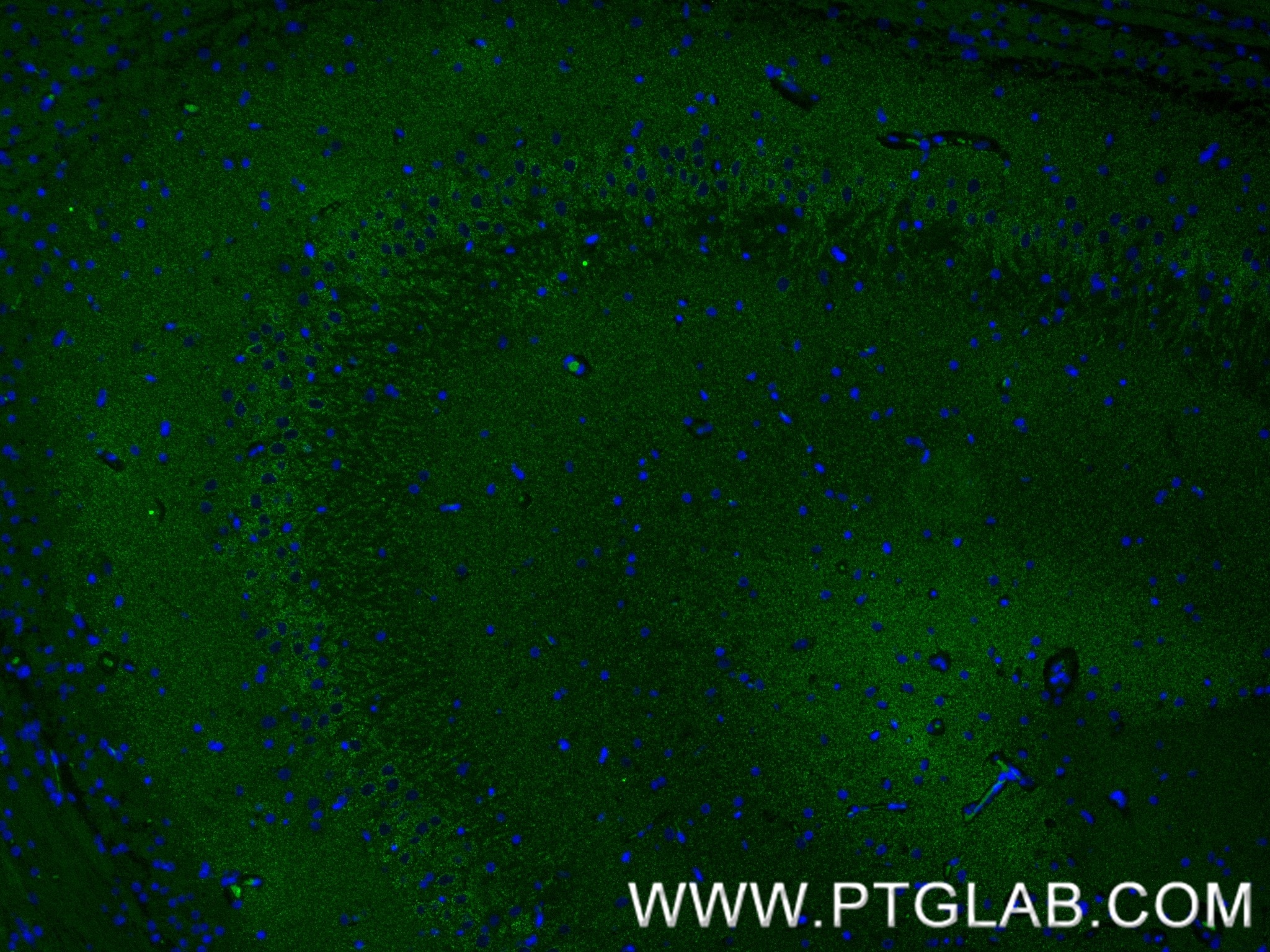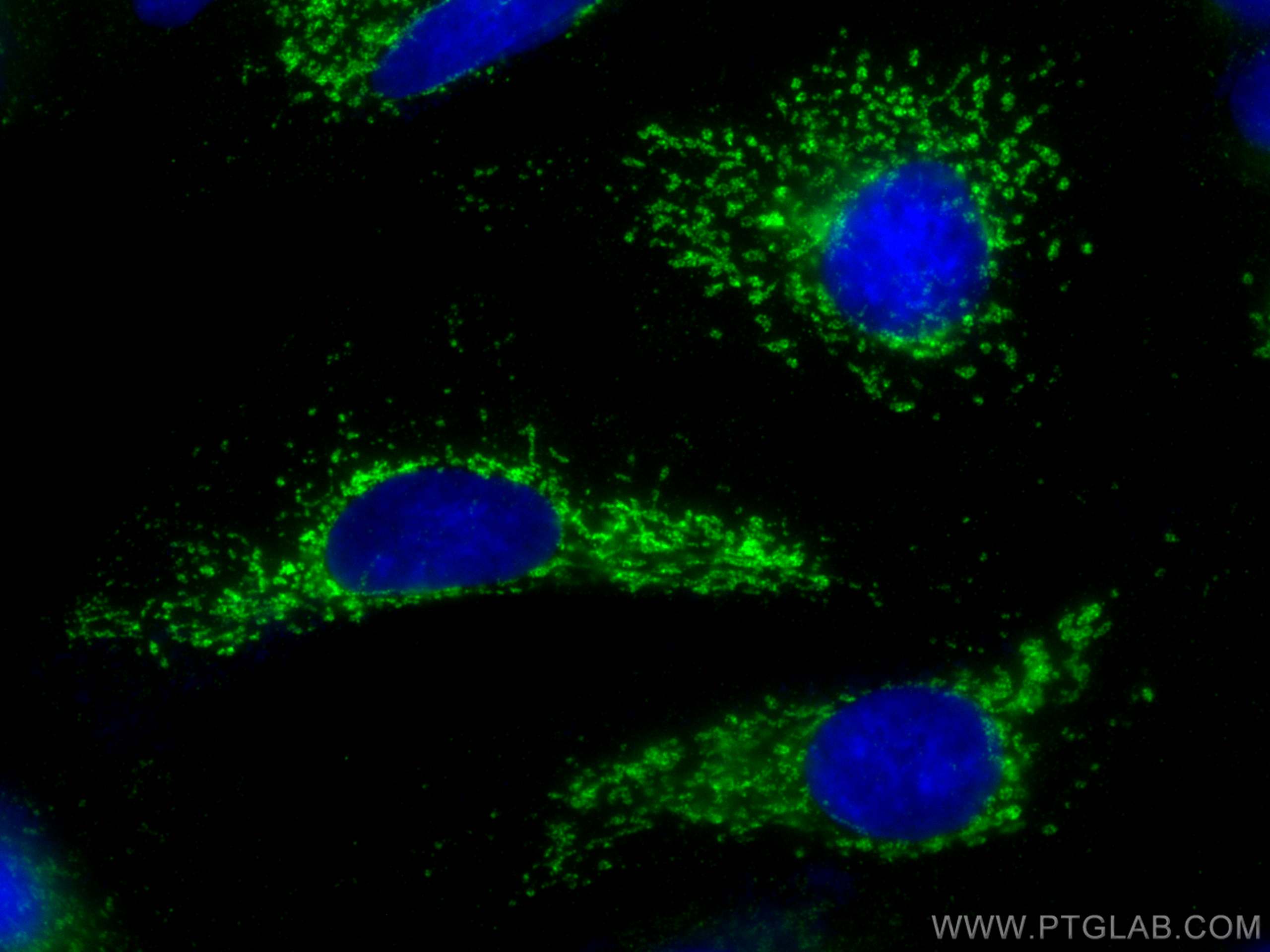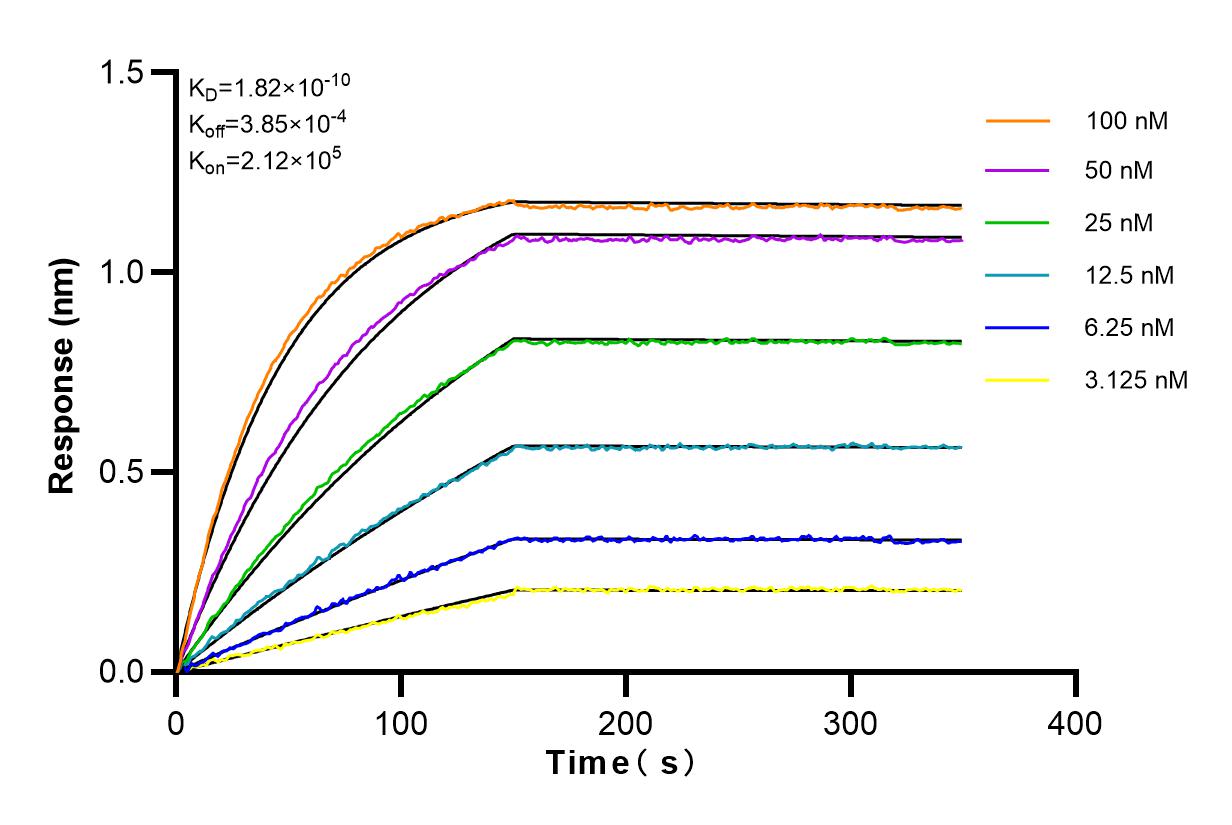- Phare
- Validé par KD/KO
Anticorps Recombinant de lapin anti-KGA/GAC
KGA/GAC Recombinant Antibody for WB, IHC, IF/ICC, IF-P, ELISA
Hôte / Isotype
Lapin / IgG
Réactivité testée
Humain, rat, souris
Applications
WB, IHC, IF/ICC, IF-P, ELISA
Conjugaison
Non conjugué
CloneNo.
4C20
N° de cat : 81486-1-RR
Synonymes
Galerie de données de validation
Applications testées
| Résultats positifs en WB | cellules A549, |
| Résultats positifs en IHC | tissu cérébral de souris, il est suggéré de démasquer l'antigène avec un tampon de TE buffer pH 9.0; (*) À défaut, 'le démasquage de l'antigène peut être 'effectué avec un tampon citrate pH 6,0. |
| Résultats positifs en IF-P | tissu cérébral de rat, tissu cérébral de souris |
| Résultats positifs en IF/ICC | cellules A549, |
Dilution recommandée
| Application | Dilution |
|---|---|
| Western Blot (WB) | WB : 1:5000-1:50000 |
| Immunohistochimie (IHC) | IHC : 1:200-1:800 |
| Immunofluorescence (IF)-P | IF-P : 1:200-1:800 |
| Immunofluorescence (IF)/ICC | IF/ICC : 1:500-1:2000 |
| It is recommended that this reagent should be titrated in each testing system to obtain optimal results. | |
| Sample-dependent, check data in validation data gallery | |
Applications publiées
| WB | See 1 publications below |
| IHC | See 1 publications below |
| IF | See 1 publications below |
Informations sur le produit
81486-1-RR cible KGA/GAC dans les applications de WB, IHC, IF/ICC, IF-P, ELISA et montre une réactivité avec des échantillons Humain, rat, souris
| Réactivité | Humain, rat, souris |
| Réactivité citée | Humain |
| Hôte / Isotype | Lapin / IgG |
| Clonalité | Recombinant |
| Type | Anticorps |
| Immunogène | KGA/GAC Protéine recombinante Ag3505 |
| Nom complet | glutaminase |
| Masse moléculaire calculée | 669 aa, 73 kDa |
| Poids moléculaire observé | 58 kDa, 65 kDa |
| Numéro d’acquisition GenBank | BC038507 |
| Symbole du gène | GLS |
| Identification du gène (NCBI) | 2744 |
| Conjugaison | Non conjugué |
| Forme | Liquide |
| Méthode de purification | Purification par protéine A |
| Tampon de stockage | PBS with 0.02% sodium azide and 50% glycerol |
| Conditions de stockage | Stocker à -20°C. Stable pendant un an après l'expédition. L'aliquotage n'est pas nécessaire pour le stockage à -20oC Les 20ul contiennent 0,1% de BSA. |
Informations générales
GLS, also named as GLS1 and KIAA0838, belongs to the glutaminase family. It catalyzes the first reaction in the primary pathway for the renal catabolism of glutamine. Glutaminase-, glutamate-, and taurine-immunoreactive neurons develop neurofibrillary tangles in Alzheimer's disease(PMID:1672808).The glutaminase band in AA/C1 cells is more intense than in HT29 cells, in accordance with measurements of glutaminase activity, and had the same molecular mass of approx. 63 kDa. The bands for both cell lines are clearly different in size from both rat liver glutaminase (58 kDa) and rat kidney glutaminase (65 kDa)(PMID:12408749). It also reveals a molecular weight of 83-84 kDa as a phosphate-dependent glutaminase(PMID:447624;7512428). It has 3 isoforms named as KGA, GAM, GAC. This antibody can recognize KGA and GAC.
Protocole
| Product Specific Protocols | |
|---|---|
| WB protocol for KGA/GAC antibody 81486-1-RR | Download protocol |
| IHC protocol for KGA/GAC antibody 81486-1-RR | Download protocol |
| IF protocol for KGA/GAC antibody 81486-1-RR | Download protocol |
| Standard Protocols | |
|---|---|
| Click here to view our Standard Protocols |
Publications
| Species | Application | Title |
|---|---|---|
Am J Cancer Res IGF2BP3-mediated regulation of GLS and GLUD1 gene expression promotes treg-induced immune escape in human cervical cancer | ||
bioRxiv IRF5 mediates adaptive immunity via altered glutamine metabolism, mTORC1 signaling and post-transcriptional regulation following T cell receptor activation | ||
Front Endocrinol (Lausanne) Hypoxia-inducible factor-2α promotes fibrosis in non-alcoholic fatty liver disease by enhancing glutamine catabolism and inhibiting yes-associated protein phosphorylation in hepatic stellate cells |
